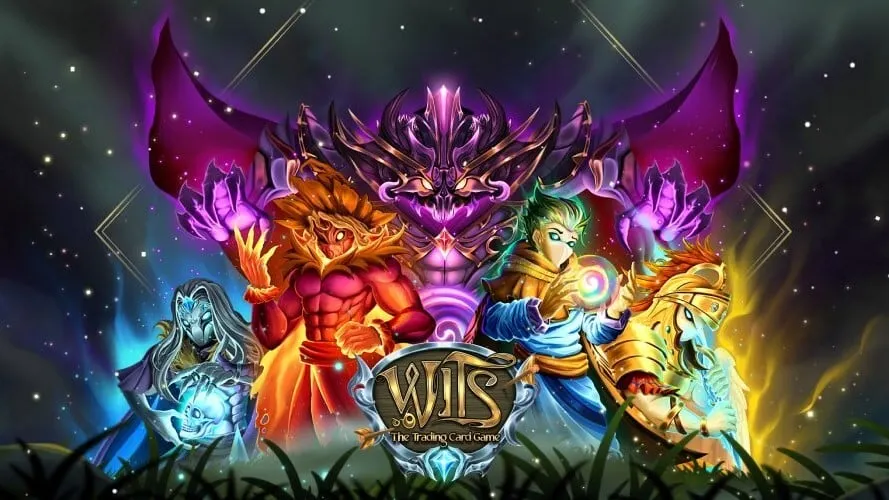What Is This Sorcery, a trading card game being built across Ethereum networks Skale and Abstract, has launched a Kickstarter campaign to raise funds to create physical cards. But it isn’t just a fundraising tool, the game’s creators say—it’s also a way to reach a wider audience of Web2 gamers.
The campaign, which launched Tuesday afternoon, aims to raise at least $20,000 for the production of the physical cards, with stretch goals ranging up to $80,000 to add more promotional and rare cards to the set. More than $6,700 has already been raised, as of this writing.
What Is This Sorcery co-founder and CEO Nick Grossi told Decrypt that Kickstarter is "supporting" the campaign with advertising and advice, along with a month-long email campaign to relevant users—i.e. someone who has backed a card game campaign in the past.
"Kickstarter isn’t just about fundraising—it’s about building real, organic demand from players outside of Web3," Grossi told Decrypt. "By launching here, we: reach mainstream gamers who want to play, not just speculate; prove our demand to future investors and partners; and avoid excessive Web3 presales that can create unsustainable market conditions."
Grossi claims that What Is This Sorcery is the first Web3 game to have such a relationship with Kickstarter. Decrypt reached out to Kickstarter to confirm its active support of the project, but did not receive a response by the time of publication.
“It’s a clear sign that Web3 gaming can appeal to traditional players if positioned correctly,” Grossi told Decrypt. “This is a blueprint for how Web3 games can integrate into mainstream gaming markets, and we’re leading the way.”
In part, that unique status is due to Web3 games typically relying on their own crypto-native methods to raise funds, often through the launch of game assets or avatars sold as NFTs, or via a token launch. Many "Web2" indie games have used Kickstarter and other crowdfunding platforms in the past, but not games built around tokenized assets.
But Grossi believes that reducing crypto-native fundraising rounds is the path towards a more sustainable model for crypto gaming. Grossi said that Web3 developers tend to “over-monetize” before releasing their game, yielding a lackluster fan base.
“We believe in showing the product and allowing ourselves to find our community, then give them the choice to buy what they want or don't want to,” Grossi said. “[There's] no need for any game asset sales before a game is even live.”
What Is This Sorcery completed the sale of 1,500 Genesis Stone NFTs for 0.04 ETH ($130) each on Abstract last week, which provide in-game items and a leaderboard boost. This comes ahead of the game’s first seasonal airdrop campaign, called Season 0, on Skale in mid-February.
But the NFT release and Kickstarter campaign isn’t a case of over-monetizing, Grossi said. That’s because the NFTs are optional, the game is already available for free on the Epic Games Store, and each source of funding has a specific purpose.
The funds raised through the NFT sale will help support in-game rewards, develop staking functionality that integrates with the game, and support the early game economy. Meanwhile, the Kickstarter campaign will fund the production, shipping, and retail costs of the game’s next product: physical cards.
These cards will have near field communication (NFC) chips installed in them, which will allow for contactless communication with smartphones and other devices. The plan is that these cards will seamlessly integrate with in-game battles, adding unique benefits like in-game bonuses, rewards, and perks. There will also be an NFT version of each card, which can be claimed by tapping it on a mobile device.
As such, those supporting the Kickstarter will receive exclusive cards and items, plus early access to the game.
“We 100% believe [the Kickstarter] approach should be a staple for Web3 projects that aim for true longevity and mass adoption,” Grossi explained. “Instead of selling a vision, we’re selling a real, playable game with physical and digital assets that actually matter.”
Edited by Andrew Hayward
Daily Debrief Newsletter
Start every day with the top news stories right now, plus original features, a podcast, videos and more.

